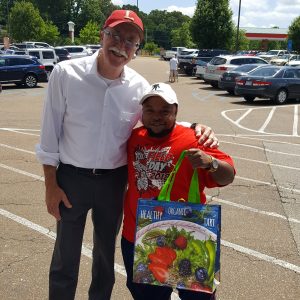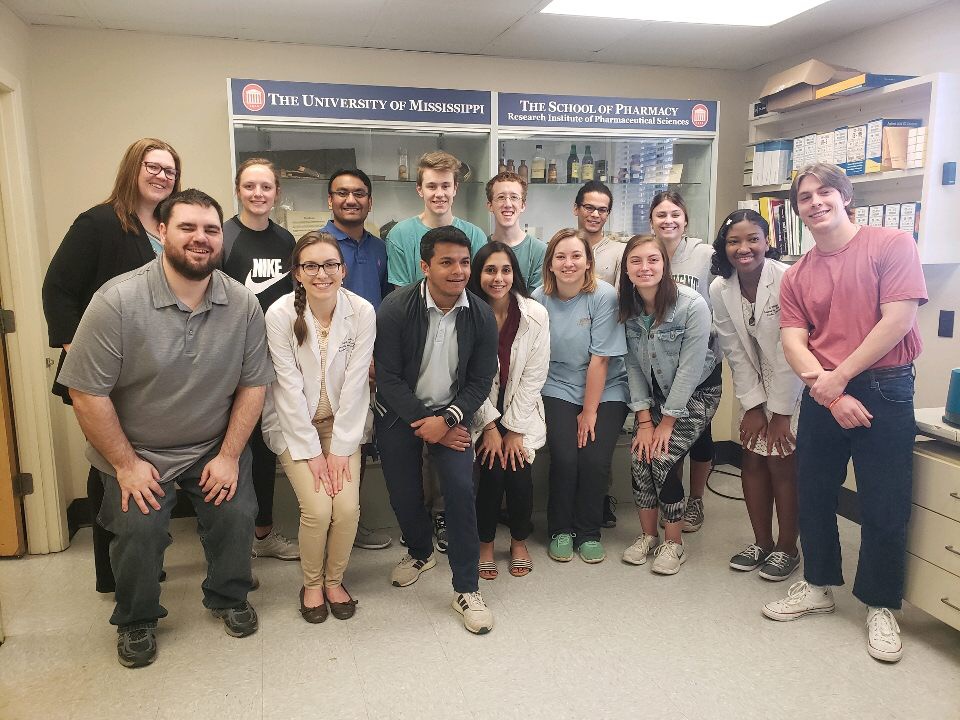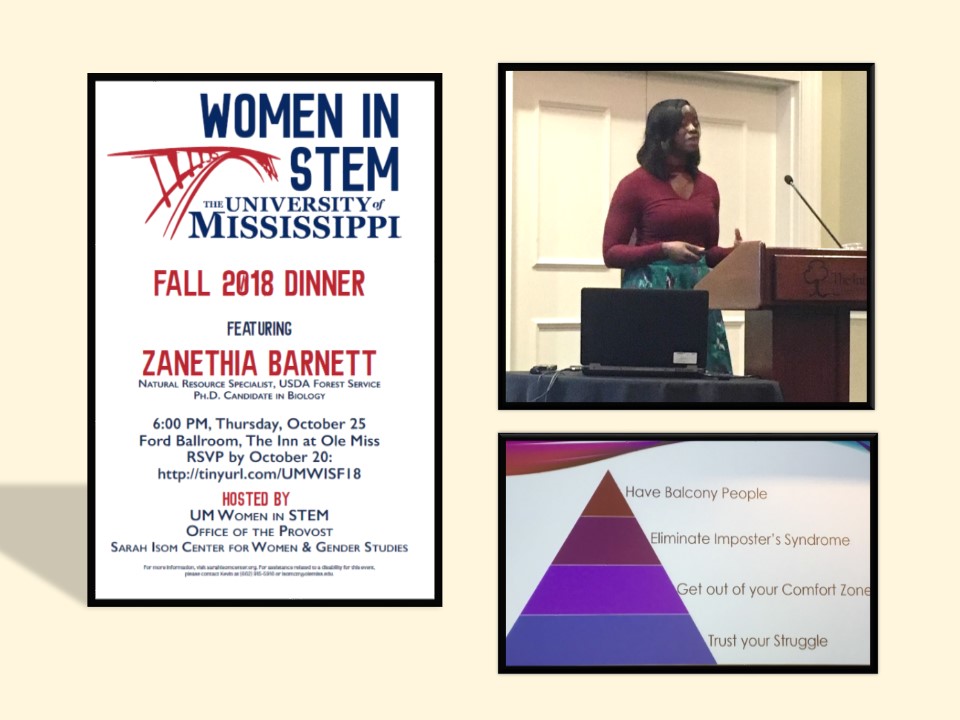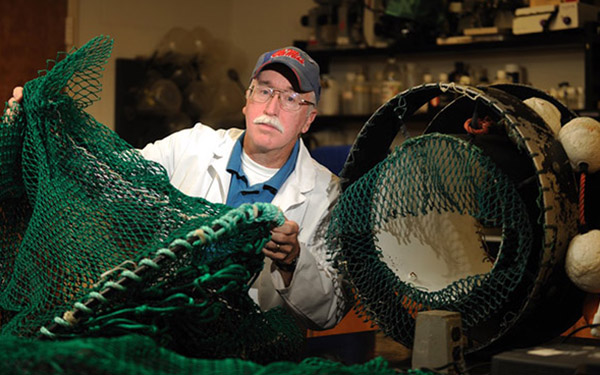Glenn Parsons, professor of biology and director of the UM Center for Biodiversity and Conservation Research, has invented a device that reduces unwanted fish and other creatures caught during the commercial fishing process – also known as bycatch – and thereby significantly increases the amount of shrimp caught.
“Bycatch slows down fishing, requiring extensive sorting to separate shrimp from bycatch,” Parsons said. “I have squatted on the back deck of countless shrimp boats, sorting shrimp from bycatch. It is back-breaking work – sort of like picking cotton.”
About a decade ago, Parsons noticed that previous bycatch reduction devices do not take advantage of flow quality changes that encourage fish to move to a place in the net where they can escape. With that in mind and through collaboration with Gulf Coast shrimpers and scientists at the Pascagoula Laboratory of the National Marine Fisheries Service, Parsons developed an improved version.
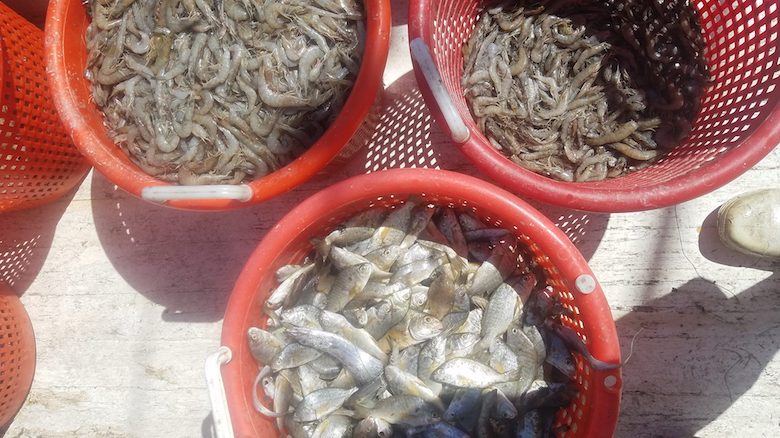
A typical catch on shrimp boats operating in the Gulf of Mexico contains many unwanted fish (bottom basket), known as bycatch, creating work for crews and reducing the amount of shrimp caught. Photo courtesy of Mark Kopsvywa
“Called the Cylinder Bycatch Reduction Device, it was developed to increase the amount of shrimp that is retained in the trawl and to eliminate a greater number of bycatch species,” he said. “This BRD creates a flow shadow that draws fish – but not shrimp – to it. The fish are then able to escape.”
Final design modifications of the Cylinder BRD occurred two years ago. The device has been tested by the National Marine Fisheries Service, passing with flying colors.
“A BRD has to deliver 30 percent or more bycatch reduction to be certified,” said Dan Foster, gear development specialist at the service in Pascagoula. “Ours came in at about 44 percent.”
Before administrative certification, Parsons and company decided that it should be placed on commercial shrimp boats to gauge its acceptance. It is being tested on about 10 boats in the northern Gulf of Mexico.
One boat captain using the CBRD gave it rave reviews.
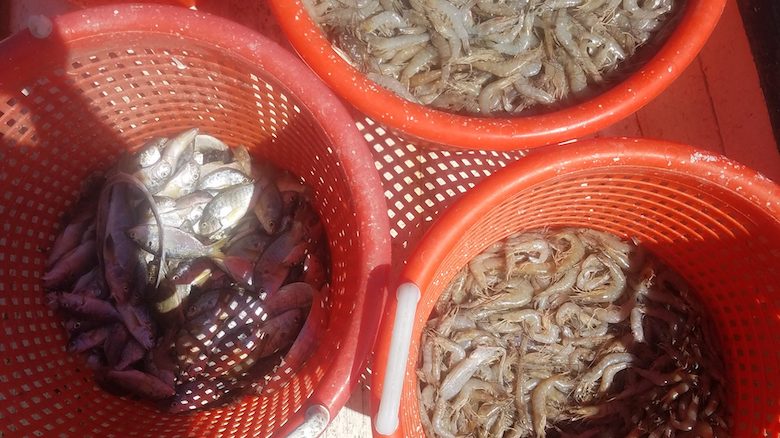
Shrimpers using the Cylinder Bycatch Reduction Device have recorded dramatic decreases in the amount of bycatch (left basket), which means less work and more profitable catches. Photo courtesy of Mark Kopsvywa
“He said that it eliminated about half of the fish from the trawl and lost very little shrimp,” Parsons said. “The shrimp loss is a very important consideration for shrimpers.
“Most shrimpers in the Gulf of Mexico are using a BRD called the ‘fish eye,’ and it loses about 10 percent of the shrimp that enters the net. The Cylinder BRD enjoys superior bycatch reduction but only loses 1.7 percent of shrimp.”
The new BRD is fully developed and is being distributed, free of charge, to shrimpers in the Gulf of Mexico. While some changes will likely be required, early evaluation of the device by shrimpers has been extremely promising. Parsons will deliver the BRD to shrimpers wherever they are.
“Feedback from shrimpers is very important for gauging the performance of the device in a real-world situation,” Parsons said. “After using the device, we require a short questionnaire to be filled out. As an incentive, we’re offering a $250 honorarium to try the device.”
Parsons’ device is funded under his U.S. Dept. of Commerce, NOAA cooperative agreement No. NA17NMF4720254, “Application of a New Bycatch Reduction Device for Use in the U.S. Shrimp Industry.”
To evaluate the new BRD, contact Parsons at 662-915-7479 or bygrp@olemiss.edu. Learn more about the device at http://www.bycatch.net/.
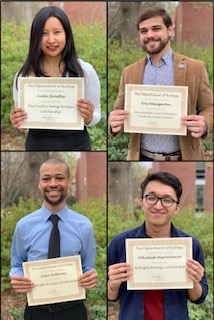 CONGRATULATIONS to these graduate students on receiving scholarships!!!
CONGRATULATIONS to these graduate students on receiving scholarships!!! The Bloomekatz laboratory contributes to a recently published paper in Developmental Cell on the signals that regulate the formation of specialized pacemaker cells, which regulate the speed and rhythmicity of the heart.
The Bloomekatz laboratory contributes to a recently published paper in Developmental Cell on the signals that regulate the formation of specialized pacemaker cells, which regulate the speed and rhythmicity of the heart.
